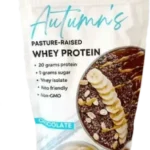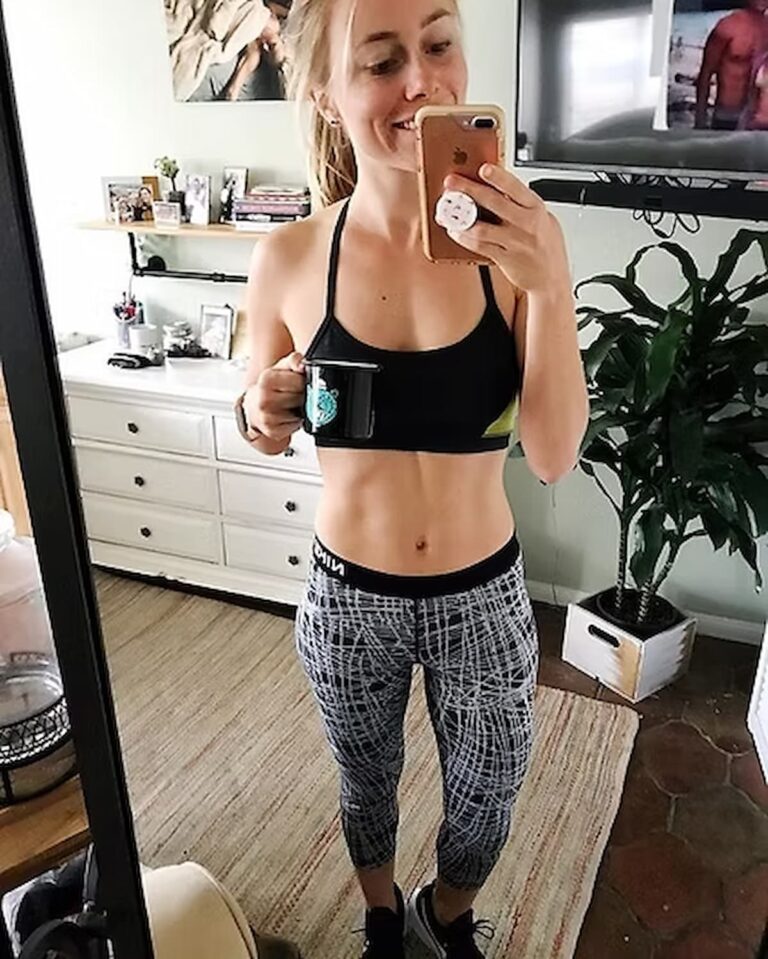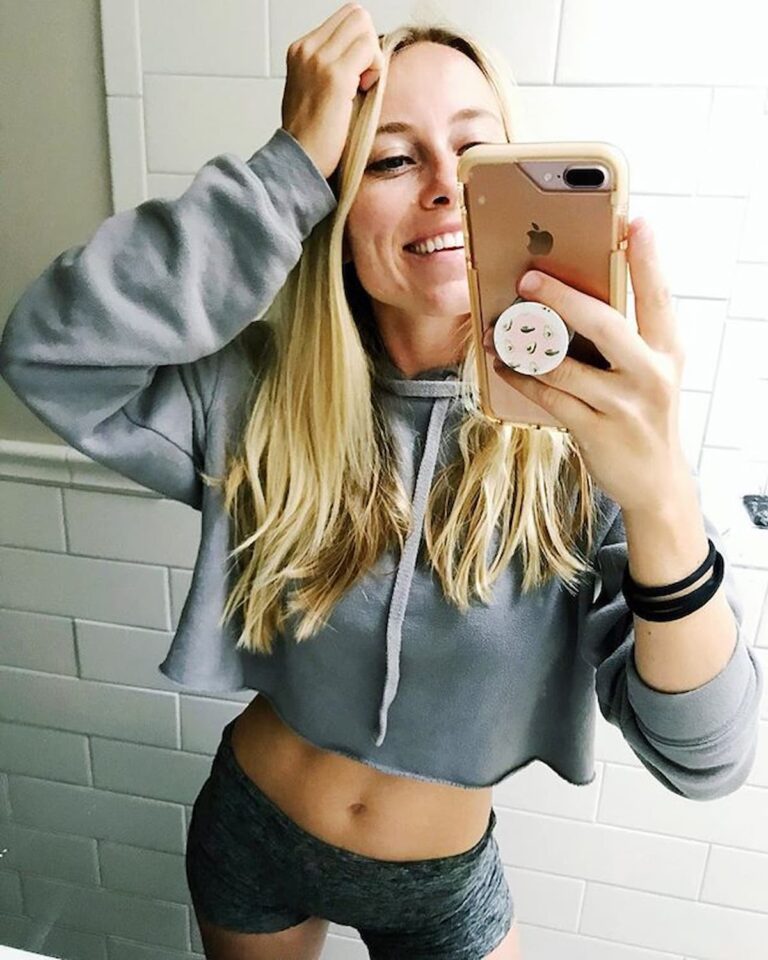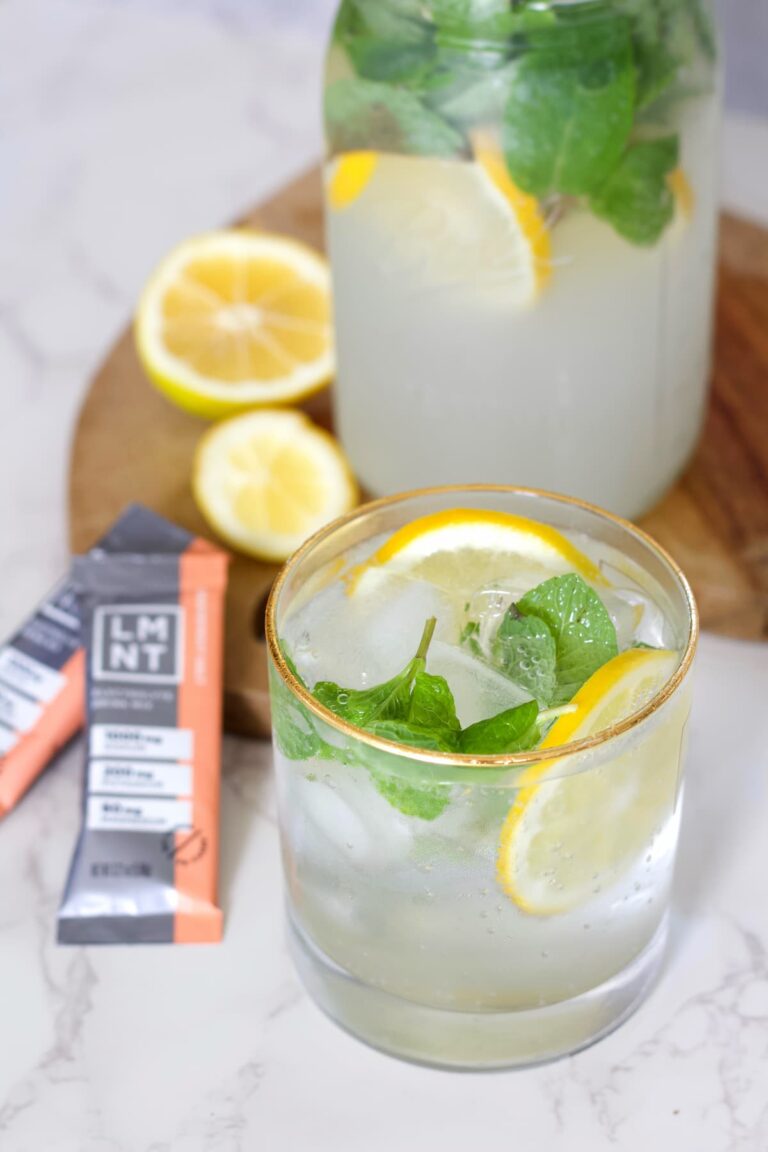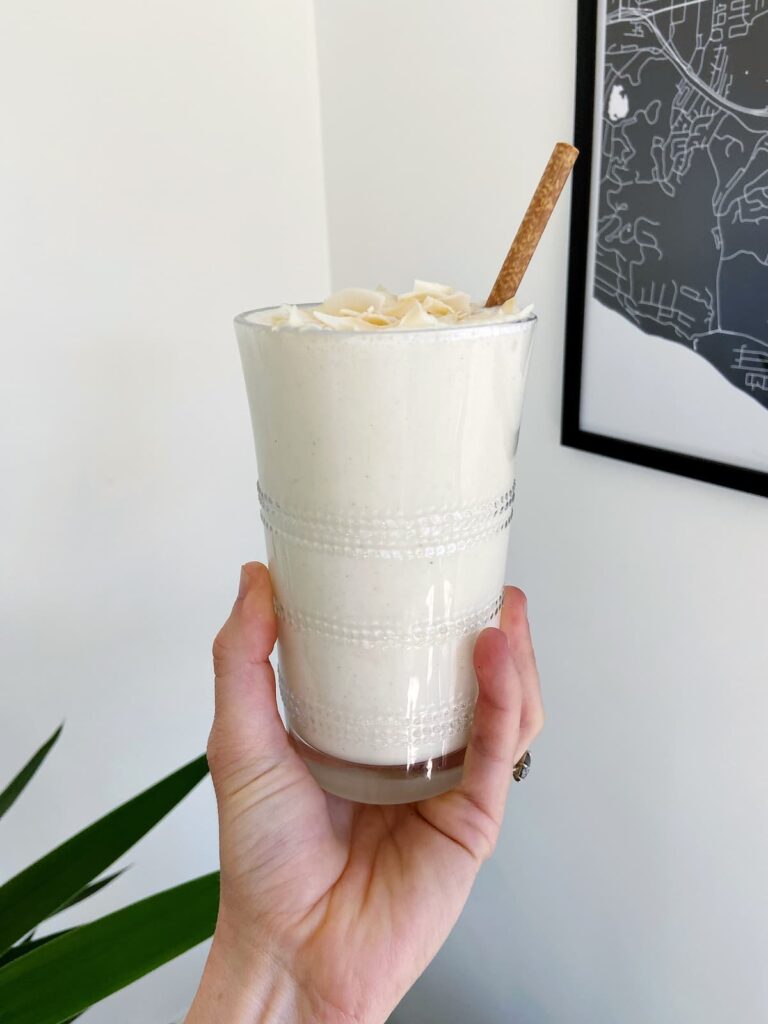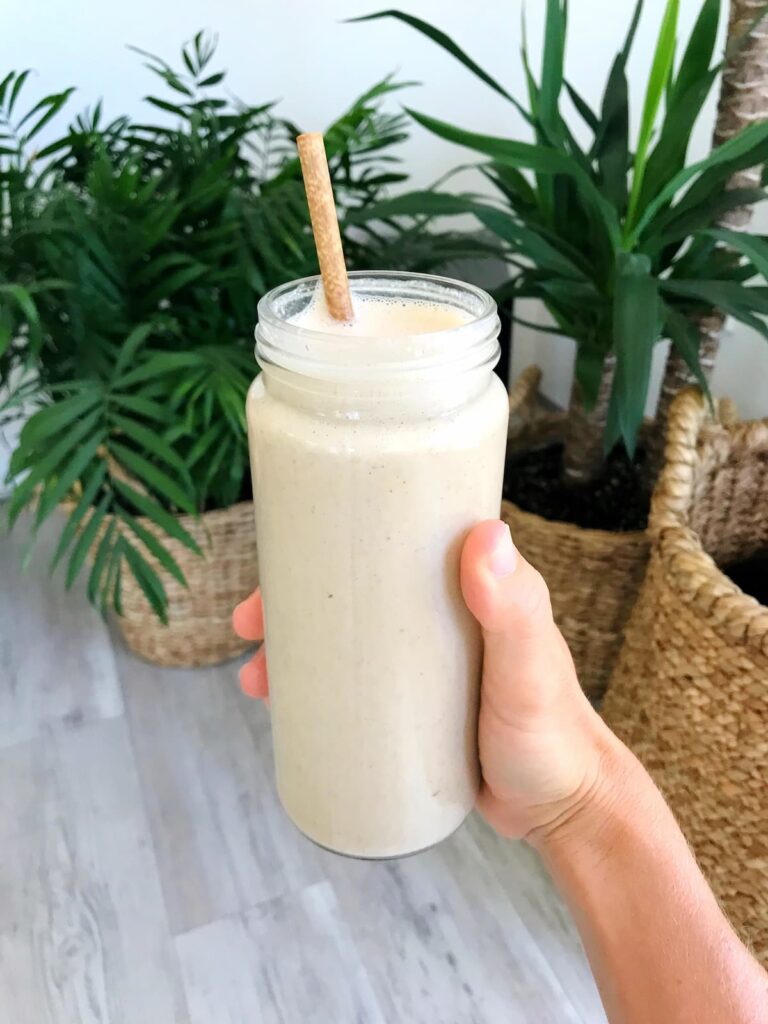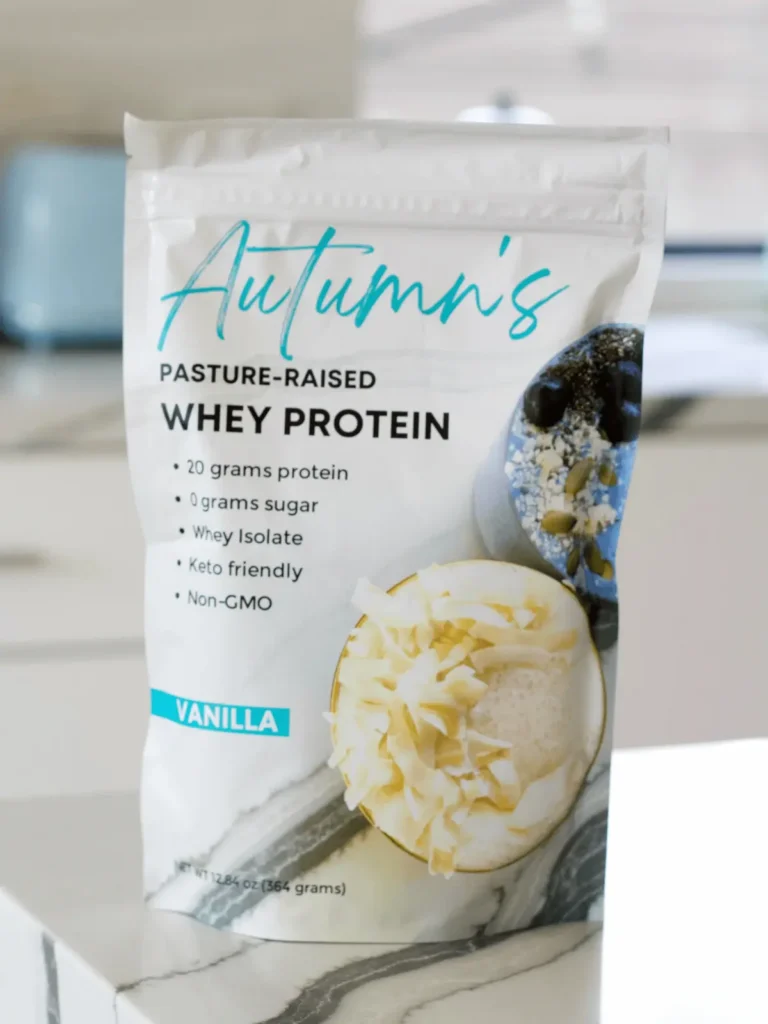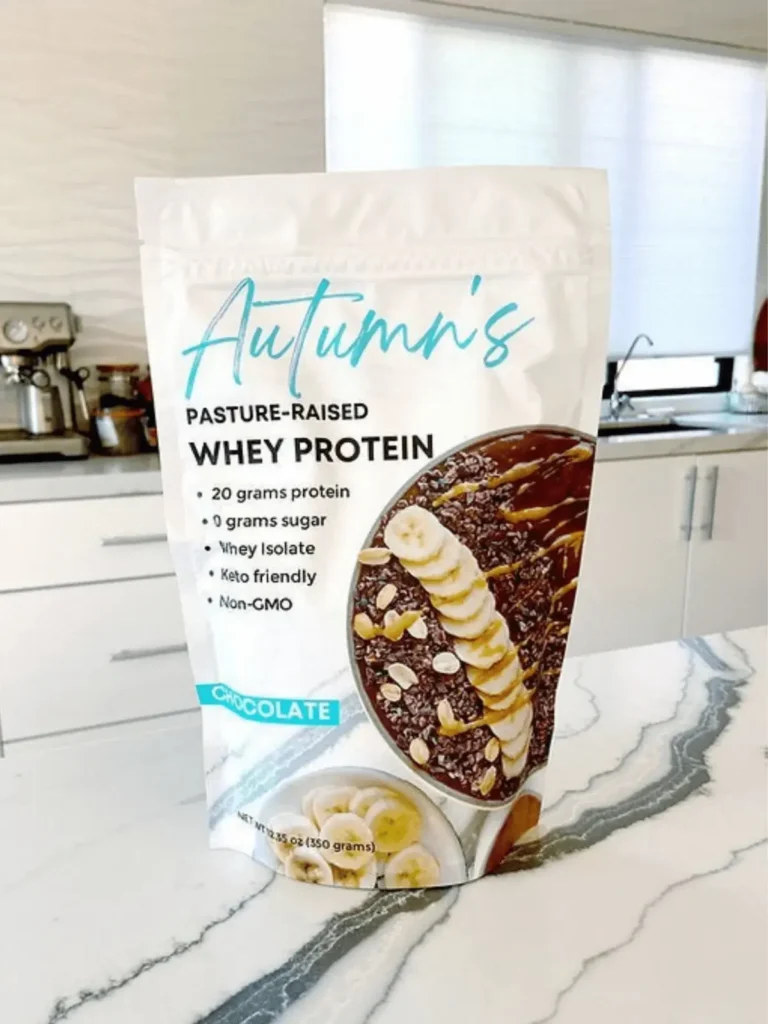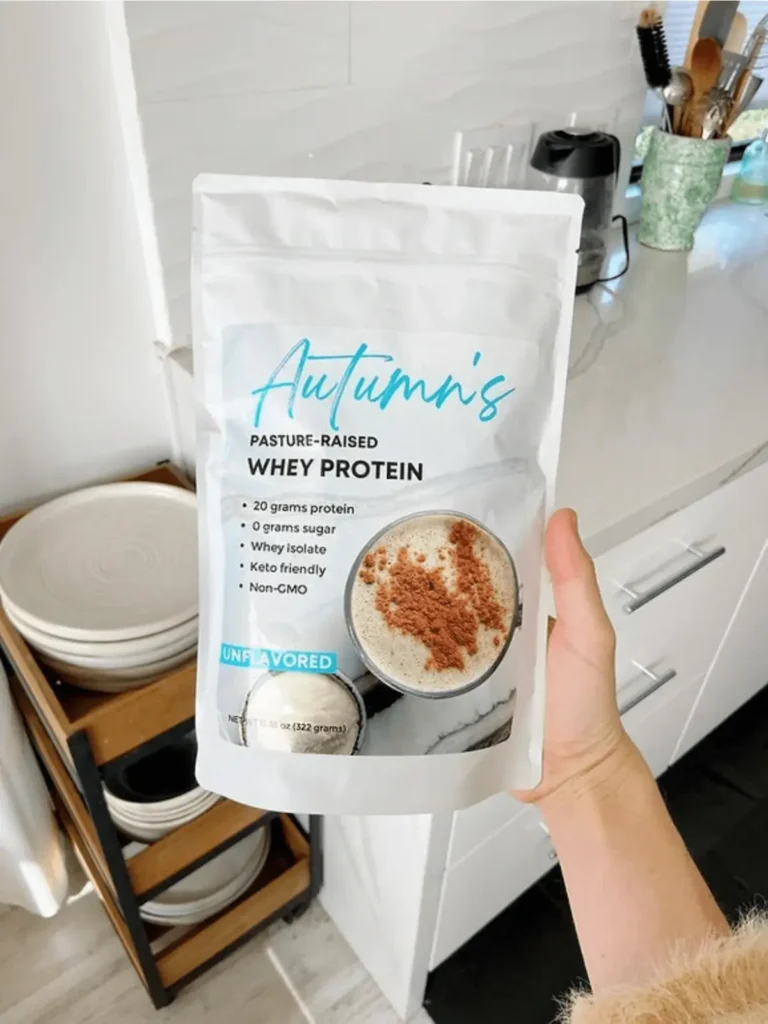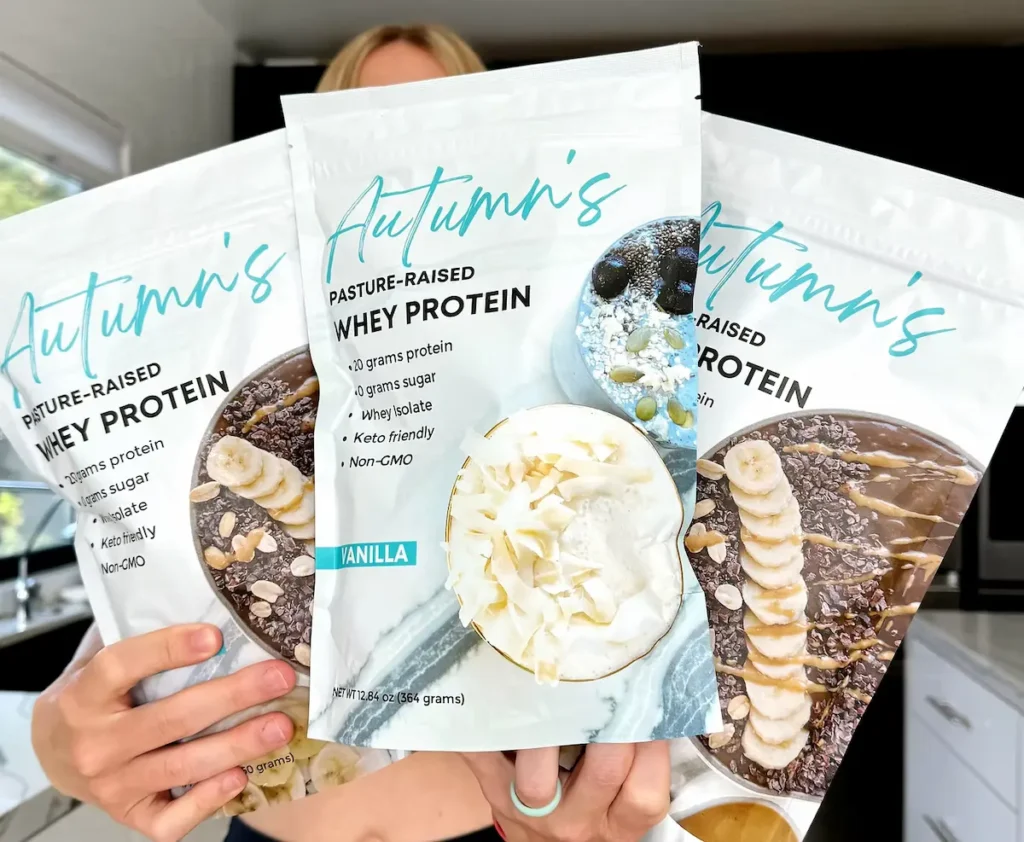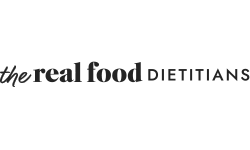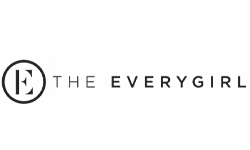Fat doesn’t just suddenly turn into muscle when you workout. Instead, working out can help to “reveal” muscle by reducing fat. Here’s how.
I remember when I first started my wellness journey a few years before I started my education in Nutrition, my mind would ask the question: “what actually happens to fat when I work out?” The logistics of it all is what I couldn’t wrap my head around. Does fat turn into muscle? What does it mean to be “burning” fat? What are you burning if not fat??
Today, I’m breaking down everything you need to know about fat burning, muscle building and achieving your wellness dreams!
The Science-y Deets of Fat
Fat has two main forms in your body: triglycerides and free fatty acids. It takes three of the free fatty acids + one glycerol molecule to form a triglyceride. When fat is formed in a triglyceride, it’s larger and “clunkier” than the small and easier to transport free fatty acid form.
Your body can only break down fat and use it as a fuel source (aka fat burning) when it is in the free fatty acid form. If the fats are in the triglyceride form, it can not be used for fat burning.
Nearly everything that isn’t immediately used as energy gets converted to fat. Excess protein as well as carbohydrates are converted to fat in the body and stored in fat cells (adipose tissue).
The Science-y Deets of Protein
Protein is used for building and repairing your body, including hormones, hair, skin, cells and immune system. We can’t truly store protein to access at a later time (the way we can with fat for energy). This is why we need to have protein each day in order to provide the protein we have lost from creating hormones, cells, skin and nails the previous day.
What Happens When You Burn Fat
You are theoretically burning fat all the time. This is where you get your sustained energy levels and fuel for important cells in your body like your brain, heart, lungs and liver. You can also use carbohydrates as a fuel source, but it’s not very efficient and your body doesn’t store much of it – therefore your body prefers to use the sustainable fat as fuel, not carbs.
You can think of this difference like trying to light a room with a lightbulb vs. fireworks. Carbohydrates are the energy equivalent to fireworks. You may get a big and bright light initially, but it quickly fades away, leaving you in darkness. Fat is the equivalent of a lightbulb. You turn it on and it will happily stay lit indefinitely.
The main determiner of whether you are able to burn fat or not is whether or not you have higher levels of insulin in your blood supply.
Insulin is secreted mainly in response to carbohydrates/sugars and works on storing these carbohydrates. Insulin also instigates the conversion of free fatty acids (the usable source of energy) into triglycerides (the unusable source of energy). This conversion causes fat burning to turn off because there aren’t free fatty acids available to be burned.
When insulin is low, you release the triglycerides into free fatty acids. These can now enter a system called beta-oxidation to break down the free fatty acids in order to create ATP (energy) to fuel every single one of your movements. With this in mind, fat is an amazing energy source and one that can be used to fuel your workouts, but it’s not necessarily what will BUILD your muscle mass.
What Happens When You Build Muscle
Muscle is formed in response to the tearing or injury of muscles. Weirdly, this is actually what is happening when you workout, especially if you’re pushing yourself with heavier weights. The higher the strain on your muscles, the bigger the healing response from your body and the more muscle mass that can theoretically be formed.
With this in mind, the energy from fat can help fuel the process of repairing and forming muscles while the protein that you eat forms the building blocks of those muscles. But fat itself does not directly convert into muscle mass. Instead, it assists in providing the energy needed to repair your muscles to achieve your weight loss AND fitness goals.
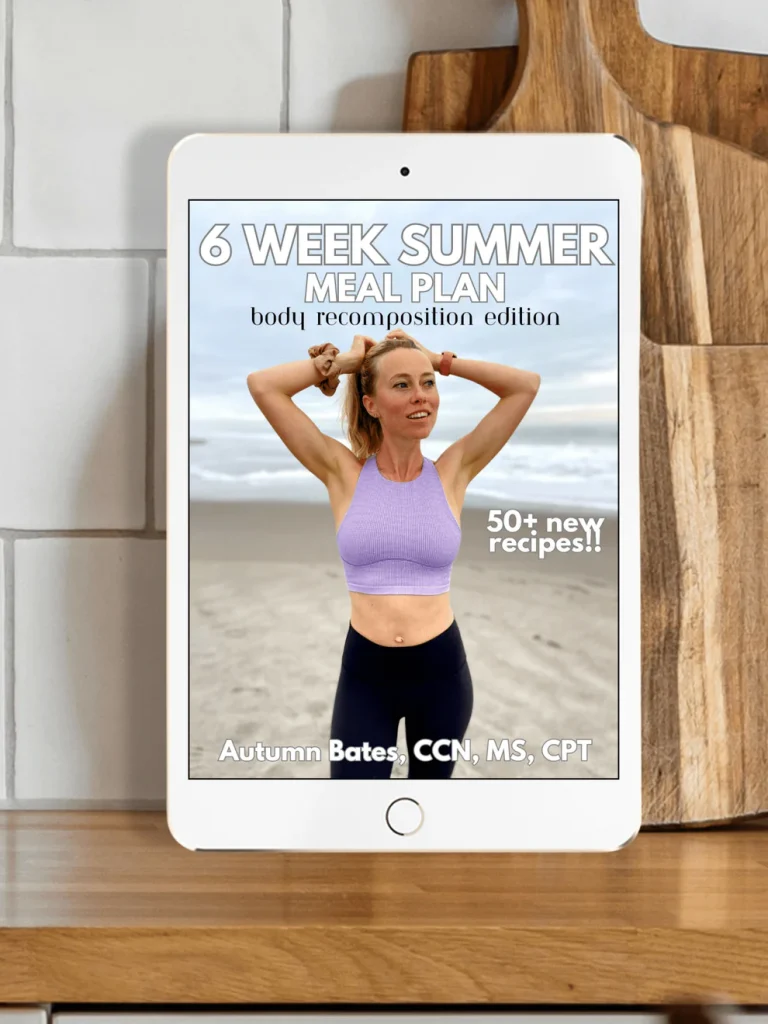
50+ NEW RECIPES!
The Body Recomposition
Meal Plan
The 6 Week Summer Meal Plan is focused on the science-backed tips, tools and recipes to help achieve a body recomposition goal.
